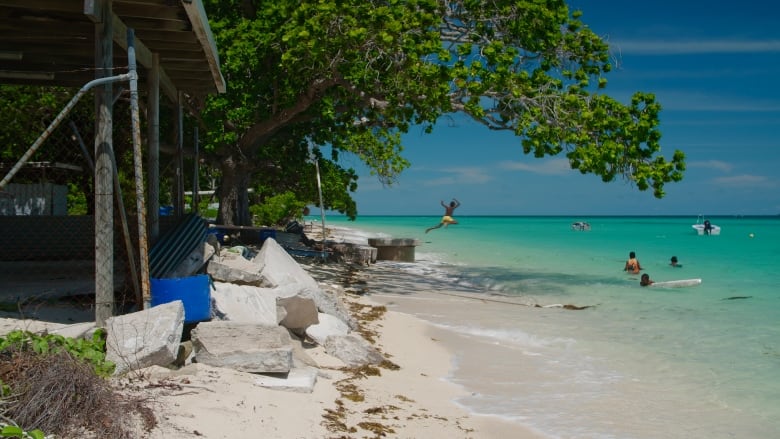As It Happens6:46Indigenous nations win UN climate case against Australia — opening the door for others
Torres Strait Islander Yessie Mosby got a call from his lawyers last week that gave him goosebumps and brought him to tears.
The United Nations human rights committee found that Australia had violated his people’s rights by failing to adequately protect them from the impacts of climate change.
“I was shocked. I just went into silent mode at first, and I said, ‘Can you say that again?’ She repeated herself and I just gave the biggest scream and said, ‘Oh, thank you, Lord!'” Mosby told As It Happens host Nil Köksal.
“I had my elders around too and I got to share the good news with them, and the village went into celebration mode.”
The complaint, filed in 2019 by Mosby and seven other Torres Strait Islanders and their children, is one of a growing body of climate cases being brought around the world on human rights grounds, and the ruling is expected to embolden others.
‘Worth fighting for’
Torres Strait Islanders comprise several Indigenous nations who live on small clusters of low-lying islands dotted between Australia and Papua New Guinea.
Mosby lives on Masig Island: a teardrop shaped coral atoll, which he says has provided for his people for thousands of years, but which is in rapid environmental decline due to rising sea levels.
Since 2019, he says the island has lost five metres of land.
Huge swaths of coconut trees have been washed away. There are fewer fish, he says, and so Islanders must go farther than ever from the shore to bring home food. And the seabirds that once made their homes on the island are dwindling away.
Still, he says his home is a beautiful place, rich in a culture that dates back 60,000 years and is still practiced today.
“This island is awesome. It’s worth fighting for, I’ll tell you that,” he said. “On top of that, it’s sacred because our loved ones are buried right through this island.”
Picking up bones
It was those buried loved ones that propelled Mosby to join the the human rights complaint against Australia. It started, he says, in 2018, when coastal erosion caused severe damage to local burial sites.
He says his uncle came running up to him with a concerned look on his face, and informed him the remains of one Mosby’s wife’s ancestors were scattered along the beach. He spent the day with a…
Click Here to Read the Full Original Article at CBC | Top Stories News…

